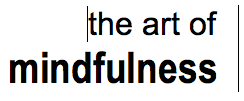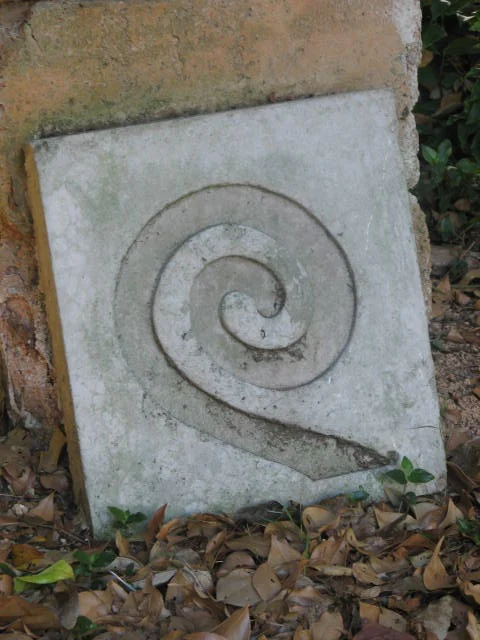Stop. Go. I Don't Know.
/Part i
The text arrives just as I’m about to leave Whangarei, northbound for the Peria Valley. ‘NZ on level 3 alert. Level 4 LOCKDOWN in 48 hours. GO HOME NOW!’ This from Nicola, who, all these years on, is still my big sister!
I feel as if I’m stretched out on a crossroads, with south to the right and north to the left and feeling the pull of two places and the people inhabiting them. Eventually I turn around and head south, towards the lovely village I call home – where my house is, and garden, and food, and office.
En route south, the panic is quite palpable. There is a long queue at the gas station, with a stressed employee taking orders behind perspex for pre-paid petrol, now and then retreating into the locked-up interior to gather items people request to buy. It takes almost an hour to fill the tank of my car. The roads are uncannily empty. There are two solitary cafes taking advantage of the last legal day of opening, and at one of them I ask for a mocha, feeling like an alcoholic ordering her last drink. There’s chaos in the supermarket in Taupo, where I stop to seek out yeast for a friend who likes to bake bread and tells me there’s none at all left in Kapiti. This is surreal.
At home, I feel some trepidation about what this four weeks will mean. I’m living alone presently, and recognise that there are many things I regularly do to alleviate the feeling of ‘solitary’. I scramble around trying to put a few things in place. Would this friend like to join me as part of my household? Would that friend like to walk or bike with me? Skype with me? Can I find kittens to raise, even though the SPCA is already closed? Shall I say yes to the Airbnb guy, who’s asking if he can do lock-down in my garden cabin?
When I actually pause, I realise I’m afraid. This seems shameful to admit. And slowly some resolve comes, to use this time to face right into that fear of being alone, to walk up to it with my eyes and heart open and examine it. This being the essence of mindfulness, after all?! I notice how much easier it is to remind other people about this than to practise myself. Wim Hof’s metaphor of facing fear being akin to proactively walking into cold water is really apt for me here.
[By the way, I really recommend Wim Hof’s breathing method (including the daily cold shower!) to help support your immune system at this time. I have found his work fantastic on many levels.}
You could say then, I surrender, at first reluctantly, and then, as day 1 and 2 and 3 roll by, with an unexpected and unfurling enjoyment. I swear the birds are singing louder. That the planet is breathing a sigh of relief because human activity has stopped. I begin to listen more than usual to the natural rhythms of my own body - the way that it really does feel better to eat only when I’m hungry, to stop eating well before I sleep. To stop activities needing light when the darkness glides in, and wake naturally, before dawn. I discover in my own way why Rumi said:
‘The breeze at dawn has secrets to tell; don’t go back to sleep’.
I begin to practise disciplines because I find them joyful, not because I should do them. I begin to notice that there’s something relaxing about having fewer choices, and as my friend, Annie Chapman, wrote: ‘As everyone settles in and hunkers down I'm wondering if others are feeling, as I am, an unexpected relief from the subtle pressures of "choice", the pressures to perform and achieve at the world's unrealistic, inhuman pace.’
I start to feel viscerally what my spiritual master has been telling me for a very long time. ‘You are never alone.’
And I begin to write again.
Part ii
I love it that we have stopped. I’m awed by the power of a cohesive and unified goal to create tangible and immediate change. It feels a pity to me that whole nations have co-operated in stopping completely because of a threat to individual health, but have not brought that same unified urgency to the table for the sake of the health of the entire planet. Nor for the billions of trees and wildlife burnt in the fury of Australian and Amazon bush fires.
I love the essay Charles Eisenstein has written, called The Coronation. His balanced, respectful and intelligent take on the Covid-19 issue is wonderful, and so are the questions he asks, along with his simple acknowledgement of ‘not knowing.’ I really recommend you read it. There’s an audio version too.
As week 1 of the lock down progresses, neighbors start policing each other, especially on social media, and sometimes face-to-face. I begin to feel nervous about the degree of ready compliance with rules whose wisdom I find questionable. I begin to realize how points of view other than the prevailing and widely-held collective unconscious beliefs about illness are labelled as inappropriate topics of discussion. I learn that people cannot sit with or see their beloved at death times, nor be with their partner as she births their child. I notice that pharmacies are an essential service, but suppliers of herbs and supplements which naturally support the immune system are not. I see that very few people are mentioning the roles fear and social isolation play in compromising one’s immune system.
In fact I am aware that not many people at all are discussing ways to boost their own immune system. I find it interesting that Wim Hof, who demonstrated in a ground-breaking scientific trial in 2013, that he was able to neutralize the effect of e. coli. bacteria injected into his body - and teach others to do the same - is not being consulted at this time. He has effectively shown that the autonomic system and immune system, contrary to the undisputed scientific paradigm at that time, are within our conscious control. This seems to me, on this spot of the Covid time line, equally as worthy of extensive investigation and research as the search for a vaccine.
Someone I met on the beach yesterday spoke to me from the usual distance. As we were parting he said: ‘I hope we can get back to normal as soon as possible.’
I hope we never go back to normal.
Normality was the crippled notion that economic gain is the unquestionable senior principle of life. Normal for humans was out-of-balance activity: running, running, running … with endless and ridiculous expectations of ourselves. Normality was individual gain, with no heart for the whole. Normality was ignoring the plight of people we can’t see and whose voices we can’t hear. Normality was a deep armoring of our raw, tender Heart – to bear the disconnect from our natural relationship with Life. Normality was the human species fouling the only nest it has to live in.
Which I think is more like a definition of insanity.
Please don’t return to normal. May you and I use the stillness of this time, like the pause between one precious out-breath and the next inhale, to listen to the natural wisdom of our own deep Heart and reflect on our own commitment to honor the health of the irreplaceable planet we call home.
Part iii
Unknown.


